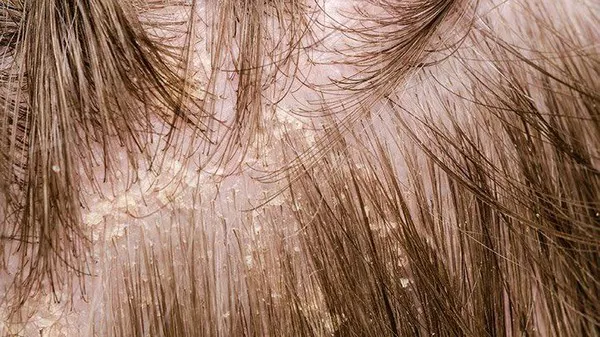Eczema, also known as dermatitis, is a skin condition that can affect various parts of the body, including the scalp. It can cause dry, itchy, inflamed patches of skin. While many associate eczema with children, it is common in adults as well. Scalp eczema can be particularly uncomfortable, as it may lead to redness, flakiness, and itching. In this article, we will explore what causes eczema on the scalp in adults, its symptoms, how it differs from other scalp conditions, and what you can do to manage it.
What is Scalp Eczema?
Scalp eczema is a type of dermatitis that specifically affects the skin on the scalp. The condition can result in dry, itchy patches, inflammation, and flaking. Sometimes, the symptoms of scalp eczema are confused with dandruff, but there are differences. Dandruff is primarily caused by the overgrowth of yeast, while eczema is more complex, involving several factors that we will explore.
Common Types of Eczema That Affect the Scalp
There are several types of eczema that may cause irritation on the scalp:
Seborrheic dermatitis: This is the most common type of eczema on the scalp and is closely associated with dandruff. It often appears as greasy, scaly patches of skin, usually around areas that have more oil-producing glands.
Atopic dermatitis: Though more commonly found on the body, atopic dermatitis can affect the scalp in some cases. It causes dry, flaky patches and is often related to genetic and environmental factors.
Contact dermatitis: This type of eczema occurs when the scalp has a reaction to certain substances, such as hair products or metals in hair accessories.
SEE ALSO: What Can You Do for Severe Eczema?
What Causes Eczema on the Scalp in Adults?
There isn’t one single cause of scalp eczema in adults. It is usually a combination of genetic, environmental, and immune factors. Let’s dive deeper into the most common causes:
1. Overactive Immune System Response
One of the primary reasons eczema develops, including on the scalp, is due to an overactive immune system. The immune system is designed to protect the body against harmful invaders like bacteria and viruses. However, in individuals with eczema, the immune system may overreact to harmless triggers, such as allergens or environmental factors. This overreaction leads to inflammation, redness, and itching.
2. Genetic Factors
Genetics plays a significant role in whether someone develops eczema. If you have a family history of eczema, asthma, or hay fever, you are more likely to experience eczema, including on your scalp. Certain genes affect the skin’s ability to provide a protective barrier. When this barrier is compromised, moisture escapes, and irritants or allergens can enter more easily, triggering an eczema flare-up.
3. Malassezia Yeast Overgrowth
Seborrheic dermatitis, the most common form of scalp eczema, is linked to the presence of a yeast called Malassezia. This yeast is naturally found on the skin, but for reasons not entirely understood, an overgrowth of this yeast on the scalp can lead to an inflammatory response, resulting in eczema. People with seborrheic dermatitis tend to have a heightened sensitivity to this yeast, which leads to the characteristic symptoms of redness, flaking, and itching.
4. Environmental Factors
Environmental triggers can also play a major role in causing scalp eczema. These factors may include:
Weather changes: Cold, dry weather can dry out the skin, increasing the risk of eczema flare-ups. In contrast, hot and humid weather can cause sweating, which can irritate the scalp and make eczema worse.
Pollution: Airborne pollutants, such as dust and smog, can irritate sensitive skin, triggering or worsening eczema on the scalp.
Stress: Stress doesn’t directly cause eczema, but it can trigger flare-ups in individuals who already have the condition. This is because stress can weaken the immune system and lead to inflammatory responses.
5. Irritants and Allergens
Exposure to certain irritants and allergens can contribute to eczema flare-ups on the scalp. These may include:
Hair care products: Shampoos, conditioners, styling products, and hair dyes can contain harsh chemicals or fragrances that irritate the skin.
Metals: Hair accessories, such as clips, hairpins, or even certain types of hats, can cause contact dermatitis if the materials they are made from trigger an allergic reaction.
Soaps and detergents: Some people are sensitive to the ingredients in household or laundry detergents, which can trigger eczema on the scalp if these products come into contact with the skin.
6. Hormonal Changes
Hormonal fluctuations can also contribute to scalp eczema. For example, seborrheic dermatitis is more common in people with certain hormonal imbalances. Conditions like thyroid disease, pregnancy, and menopause can trigger hormonal changes that may increase the risk of eczema flare-ups. Additionally, some people notice that their scalp eczema worsens at specific times, such as before or during menstruation.
7. Sweating
Excessive sweating can aggravate eczema on the scalp. Sweat, combined with heat and friction, can cause irritation, leading to an eczema flare-up. This is particularly common in athletes or individuals who engage in regular physical activities. Sweat also increases the moisture on the scalp, which can encourage the overgrowth of the Malassezia yeast, leading to seborrheic dermatitis.
Symptoms of Scalp Eczema
Scalp eczema presents with several common symptoms, although the severity and specifics may vary from person to person. These symptoms include:
Itchiness: The most common symptom, itchiness, can range from mild to severe.
Redness: Inflammation causes the affected areas of the scalp to turn red.
Flaking: Dry, flaky skin may resemble dandruff.
Oozing or Crusting: In severe cases, eczema may cause the skin to ooze or form crusts.
Greasy Patches: Seborrheic dermatitis, in particular, can lead to greasy patches of skin along with yellowish scales.
How is Scalp Eczema Diagnosed?
If you suspect you have scalp eczema, it is important to see a dermatologist for a proper diagnosis. The doctor will examine your scalp, ask about your symptoms, and possibly perform a patch test to determine if an allergen is causing the eczema. The doctor may also want to rule out other conditions like psoriasis, which can cause similar symptoms but is treated differently.
Managing Scalp Eczema
While there is no cure for eczema, several treatments and lifestyle changes can help manage symptoms and prevent flare-ups.
1. Medicated Shampoos
Over-the-counter or prescription medicated shampoos are often used to treat seborrheic dermatitis. These shampoos usually contain antifungal agents like ketoconazole or selenium sulfide to control the yeast that contributes to the condition.
2. Topical Steroids
In cases where inflammation is more severe, your dermatologist may prescribe topical corticosteroids to reduce redness, itching, and swelling. These creams or ointments are applied directly to the affected area of the scalp.
3. Moisturizing the Scalp
Keeping your scalp hydrated is essential in managing eczema. Use gentle, fragrance-free moisturizers, oils, or emollients to prevent dryness and soothe irritated skin.
4. Avoid Irritants
One of the most effective ways to prevent scalp eczema flare-ups is to identify and avoid potential irritants. This includes choosing hair care products that are free from harsh chemicals and allergens. Opt for hypoallergenic, fragrance-free shampoos and conditioners.
5. Stress Management
Since stress can trigger eczema, finding ways to manage stress is crucial. Practices such as yoga, meditation, and regular exercise can help reduce stress levels and, in turn, minimize the risk of flare-ups.
Conclusion
Eczema on the scalp in adults is a frustrating condition, but understanding the causes can help in managing it. Factors like genetics, immune responses, yeast overgrowth, environmental triggers, and irritants all contribute to scalp eczema. With the right treatment and lifestyle adjustments, you can keep the symptoms under control. If you suspect you have scalp eczema, it’s important to consult a dermatologist for a proper diagnosis and personalized treatment plan.
Related topics:























